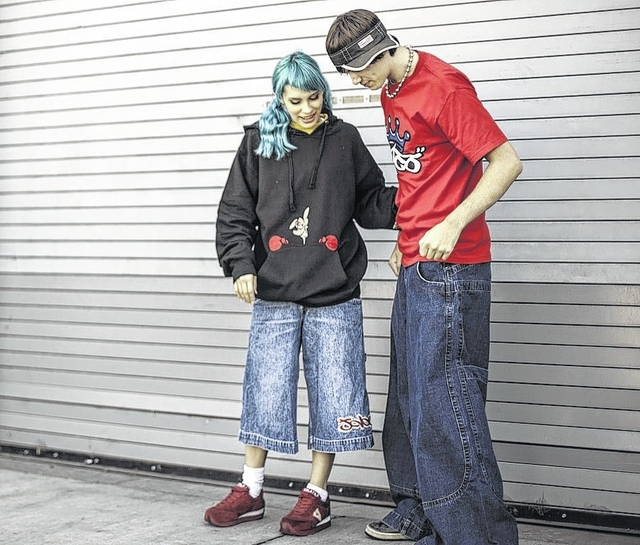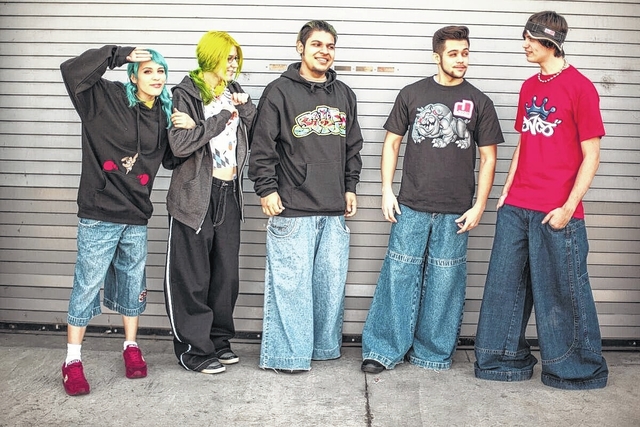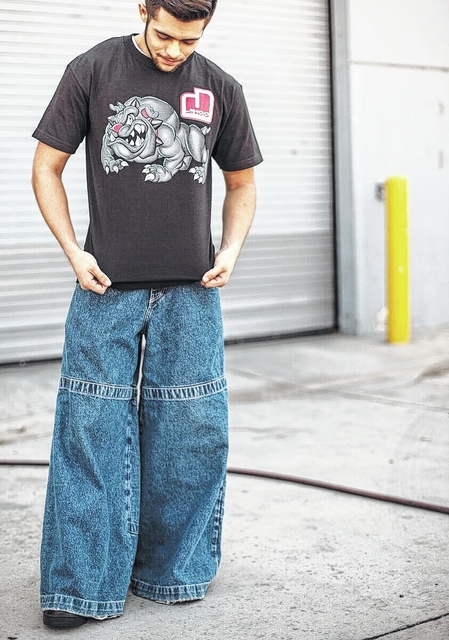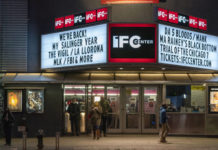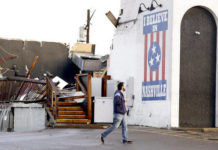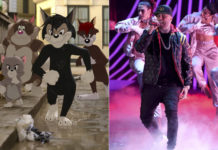Time has put a decade between us and the ’90s, but those final 10 years of the 20th century refuse to stay buried. Streaming services and special programming blocks have kept shows like “Seinfeld” and “Friends” culturally relevant; some ’90s staples like “Twin Peaks” and “The X-Files” proved popular enough for full-fledged revivals. Video games have taken a step back into pixelated territory with remakes and re-releases, vinyl sales have seen a substantial increase and products like Surge and French Toast Crunch returned to grocery store shelves. These entertainment and consumer staples have found new life in a new decade, and one of the most iconic fashion trends of the ’90s is about to join the nostalgia party.
JNCO was founded in Los Angeles in 1985. An amalgamation of the words “jean” and “company,” JNCO rose to national prominence in the mid ’90s by catering to the hip-hop, raver and skater countercultures of the decade with baggy, wide-legged jeans. JNCO denim often featured oversized pockets decorated with cartoonish animal logos designed by street artists and were carried in retail locations ranging from street boutiques to J.C. Penney.
As years passed and the decade waned so did JNCO, and by the dawn of the 21st century the brand had gone the way of Pogs and Beanie Babies. First JNCO fizzled and was relegated to discount store shelves. Then the clothing company went quiet altogether. The brand name synonymous with energetic and youthful countercultures stayed dormant until 2014, when Los Angeles-based Guotai USA bought the JNCO name.
GUSA is a joint venture between Chinese company, Jiangsu Guotai Litian Enterprises Co., Ltd. and U.S. citizen Issac Cohen. Their relaunch of JNCO aimed to position the brand as a high-end name in streetwear with a focus on skinny jeans, but GUSA missed the mark. That’s when Cohen’s son Joseph was hired as JNCO’s director of strategic planning.
“I wasn’t with the company at the start, but when they received the license they thought they could make JNCO a very forward, expensive brand,” Joseph said. “The skinny jeans are not what JNCO is known for and they had a big failure. I joined the company about six months ago and changed the direction to keep it as loyal as possible to the brand and what it represents.”
Joseph Cohen’s family moved to Germany when he was 10, but he moved back to the United States three years ago and recently finished his MBA. Before joining JNCO, Cohen worked in business evaluation. After joining JNCO, Cohen used his education and experience to pinpoint an advanced tool that would help him gather the necessary data to decide JNCO’s new direction: Facebook.
“We have more than 55,000 followers on our Facebook page that are very engaged,” Cohen said. “We surveyed our audience there and saw that there’s a big demand for comfortable, wide legged jeans with cool designs and cool characters. Nobody’s really producing it, so for me it made perfect sense.”
According to Cohen, JNCO’s Heritage Collection features designs ripped straight from the ’90s using updated fabrics to account for any advancements in quality. He plans to reintroduce old designs on a monthly basis and is currently in talks with original JNCO graphic artists to develop new designs. Cohen and his team are shooting for authenticity, and their faithfulness to the origins of JNCO will please longtime brand supporters like Robert Rogers.
Rogers, 39, is a resident of LaFayette, Louisiana who phoned Weekender’s office after viewing the JNCO revival article on our website. A Chicago native who was an adolescent during JNCO’s explosion in popularity, Rogers associates the brand with his journey through the awkward years.
“I was like a nerd back in the day; I was like Steve Urkel,” Rogers said. “When JNCO came out is when I started evolving into ‘Bobby.’ I was growing up and my parents didn’t pick out my clothing anymore; the maturity of Bob Rogers came out. They’ve got a lot of deep memories for me.”
According to Rogers, JNCO was important to the growth of the house and techno music scenes in 1990’s Chicago. He recalled an environment full of loud music, wide-legged jeans and constant dance battles that incubated burgeoning artists and fostered a sense of individuality. The wide-legged jeans part was important to Rogers; he saw the JNCO logo as both the flag of his scene and an indicator of its wearer’s personality, and hopes that the revived clothing company continues to represent those ideals.
“I hope they keep the original idea that it was more about similar people coming together,” Rogers said. “I don’t know if JNCO had to do with it or if it was more ourselves, but we made it to where it was more of a group thing. When we’d hang out there was no fighting and no stupid stuff; if people wore JNCO jeans it was like a badge that said you were going to do the right thing.”
JNCO’s latest marketing materials is a ‘Judge None/Choose One’ tagline featured prominently on the jnco.com website and the site’s literature states that JNCO’s relaunch is guided by the brand’s main principle: Challenge conventionalism. Explore the unfamiliar. Honor individuality.
The site goes on to explain that JNCO’s goal is to bring together the chosen ones. Who are the chosen ones? According to JNCO, they’re “a multitude of like-minded individuals with a shared passion for culture, sports and the arts.” For Wyoming resident Joseph Palmieri, being one of the chosen ones meant something more grounded than idyllic.
At that time my group of friends did a lot of activities outdoors,” Palmieri said. “When we got out of school we were right out the door; whether we were roller blading, biking, or skating, we were always outdoors. We hung out more in groups outdoors and it was the whole skate scene, so JNCOs were popular, especially in my group of friends.”
Palmieri, now 31, said he had to own every pair of the jeans he could; when his parents asked him what he wanted for Christmas or his birthday, his answer for a brief period in the ’90s was “JNCO.” He and his younger brother Mario used to argue over who was wearing whose JNCOs; the jeans were their go-tos, something they wore every day. Palmieri said the various JNCO jean styles were named after the emblem on the back, which was usually a cartoonish animal logo. There were skunks, snails and dogs, but his favorite pair was called kangaroos.
“They had a kangaroo with boxing gloves over the pocket,” Palmieri said. “They were one that stood out because they were huge. The leg was close to a foot and a half wide, maybe even bigger. When I think about what I probably looked like at that point, wearing those in public, it’s kind of funny.”
Whether it’s sibling rivalry and skateboards or dance battles and badges of honor, the JNCO brand represents something to those who wore it and Cohen is hoping to reignite that sentiment with the December launch of JNCO’s Heritage Collection. The kangaroos are back, along with the skunks, dogs and graffiti word-mark logos that adorned JNCO’s shirts, hoodies and wide-legged denim, but can the iconic ’90s fashion trend find new life in a new decade?
That’s up to the chosen ones.
